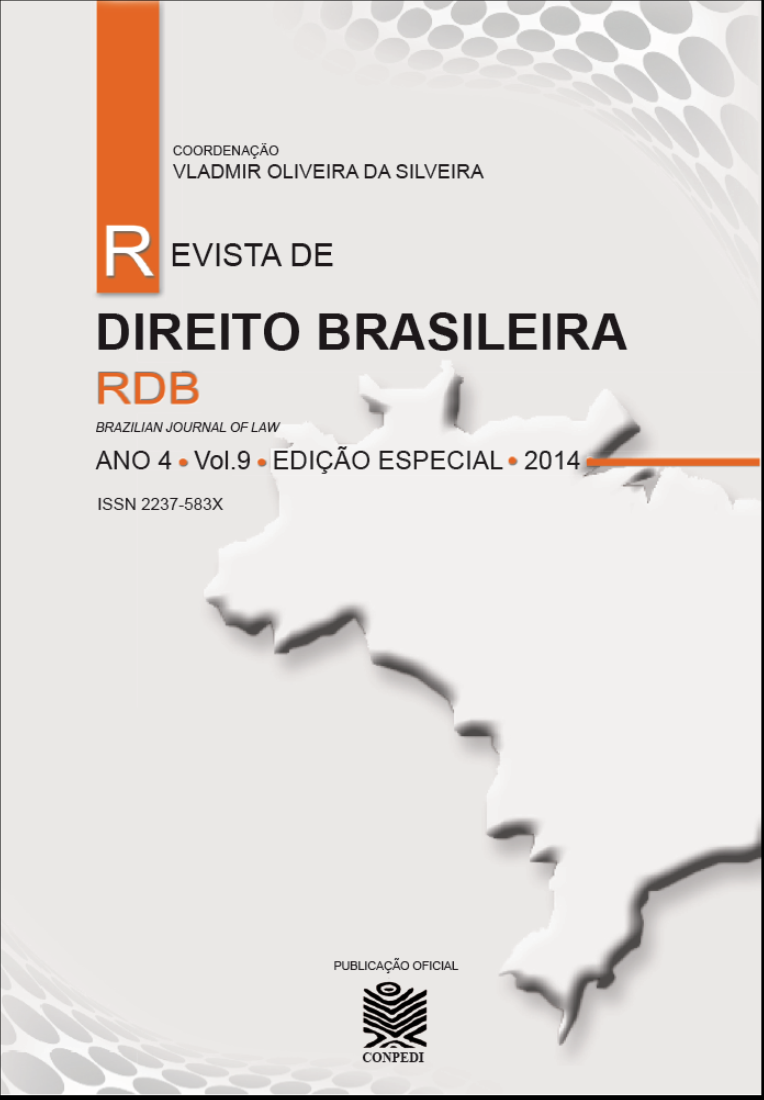La deslealtad en las comunicaciones comerciales
Conteúdo do artigo principal
Resumo
La definición del concepto de “prácticas comerciales con los consumidores
y usuarios” se encuentra en el inciso segundo del art. 19.2 TRLGDCU y se identificacon todo acto, omisión, conducta, manifestación o comunicación comercial, incluidala publicidad y la comercialización. De ahí la relevancia de delimitar qué debemos entender por comunicación comercial. Para poder analizar las comunicaciones comerciales desde su deslealtad hacia el consumidor y usuario resulta imprescindible delimitar el término mediante el examen de la normativa reguladora de las comunicaciones comerciales europea (Libro Verde sobre las comunicaciones comerciales en el Mercado Interior y Directiva sobre el comercio electrónico) y nacional (LODC y LSSICE, entre otras). Asimismo, resulta necesario diferenciar los dos grandes tipos de comunicaciones comerciales existentes en la praxis: las comunicaciones comerciales electrónicas y las no electrónicas. Tras un estudio legislativo, complementado con estudios doctrinales y jurisprudenciales, de ambas tipologías de comunicaciones nos centramos en la deslealtad de las comunicaciones comerciales electrónicas. Se destaca, dedicando gran parte expositiva del presente estudio, la práctica comercial desleal regulada en el art. 29 LCD. Ello es así porque el mencionado precepto regula las prácticas comerciales agresivas por acoso efectuadas por medios a distancia, supuesto de hecho idéntico al previsto por la LSSICE. Por este motivo, emerge un especial interés en observar las conexiones y, especialmente, la autonomía funcional
y aplicativa de ambas normativas. Finalmente, mediante la STJUE de 12 de mayo
de 2011 (asunto C-122/10) analizamos las comunicaciones comerciales electrónicas engañosas, en este caso, por omisión de información.
Downloads
Detalhes do artigo
• O(s) autor(es) garante(m) que a contribuição é original e inédita e que não está em processo de avaliação em outra(s) revista(s);
• A revista não se responsabiliza pelas opiniões, ideias e conceitos emitidos nos textos, por serem de inteira responsabilidade de seu(s) autor(es);
• É reservado aos editores o direito de proceder ajustes textuais e de adequação do artigo às normas da publicação.
Autores mantêm os direitos autorais e concedem à revista o direito de primeira publicação, com o trabalho simultaneamente licenciado sob a Licença Creative Commons Attribution que permite o compartilhamento do trabalho com reconhecimento da autoria e publicação inicial nesta revista.
Autores têm autorização para assumir contratos adicionais separadamente, para distribuição não exclusiva da versão do trabalho publicada nesta revista (ex.: publicar em repositório institucional ou como capítulo de livro), com reconhecimento de autoria e publicação inicial nesta revista.
Autores têm permissão e são estimulados a publicar e distribuir seu trabalho online (ex.: em repositórios institucionais ou na sua página pessoal) a qualquer ponto antes ou durante o processo editorial, já que isso pode gerar alterações produtivas, bem como aumentar o impacto e a citação do trabalho publicado (Veja O Efeito do Acesso Livre) emhttp://opcit.eprints.org/oacitation-biblio.html
Referências
Barral Viñals, I. (coord.). La regul@ción del comercio electrónico. Madrid: Dykinson, 2003.
Botana García, G. “Noción de comercio electrónico”. En: Botana García, G. (coord.). Comercio electrónico y protección de los consumidores. Madrid: La Ley, 2001, cap. I.
Burgos Solans, D. y De León Fernández, L. Comercio electrónico, publicidad y marketing en Internet. Madrid: McGraw Hill, 2001.
Calvo Caravaca , A.L. y Carrascosa González, J. Conflictos de leyes y conflictos de jurisdicción en Internet. Madrid: Colex, 2001.
De La Cuesta Rute, J.M. “Tratamiento jurídico en España de la comunicación publicitaria ilícita”, La Ley: Revista jurídica española de doctrina, jurisprudencia y bibliografía, 1981, núm. 4. pp. 893-917.
LLácer Matacás , M.R. “La autodeterminación informativa en la sociedad de la información y la vigilancia”. En: LLácer Matacás, M.R. (coord.). Protección de datos personales en la sociedad de la información y la vigilancia. Madrid: La Ley. Grupo Wolters Kluwer, 2011.
Méndez Tomás, R.M. y Vilalta Nicuesa, A.E. Comunicaciones comerciales y contratación por vía Electrónica. Barcelona: Bosch, 2003.
Moreno Navarrete , M.Á. DERECHO-e Derecho del Comercio Electrónico. Madrid: Marcial Pons, 2002.
Signes de Mesa, J.I., “Sentencia del Tribunal de Justicia de la Unión Europea sobre comunicaciones comerciales y prácticas desleales”, Revista de derecho bancario y bursátil, núm. 123, 2011, pp. 301 y 302.
Tato Plaza, A.; Fernández Carballo-Calero, P. y Herrera Petrus, CH. La reforma de la Ley de Competencia Desleal. Madrid: La Ley, 2010.





